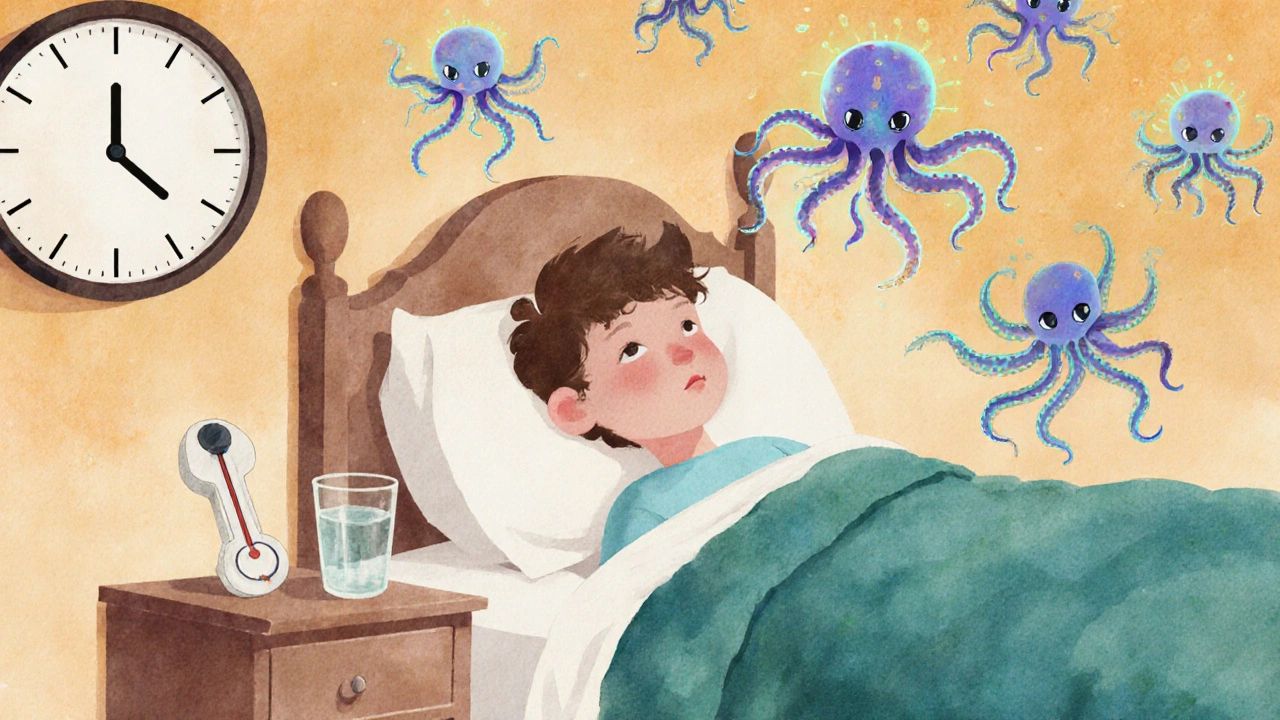Infectious Mononucleosis: Causes, Symptoms, and What You Need to Know
When people talk about infectious mononucleosis, a viral infection often called mono, typically caused by the Epstein-Barr virus. Also known as the kissing disease, it’s not just a sore throat—it’s a full-body fatigue that can last weeks. Most cases happen in teens and young adults, but anyone can catch it. You don’t need to kiss someone to get it—sharing drinks, utensils, or even coughing near someone with the virus can spread it.
The Epstein-Barr virus, a member of the herpes family that stays in your body for life after infection is behind most cases. Once you’ve had mono, you won’t get it again, but you can still pass the virus to others years later, even if you feel fine. That’s why it’s so common in college dorms, sports teams, and crowded living spaces. Symptoms usually show up 4 to 6 weeks after exposure: extreme tiredness, swollen glands, fever, sore throat, and sometimes an enlarged spleen. Many people think it’s just the flu, but mono doesn’t clear up in a few days—it drags on.
There’s no cure for infectious mononucleosis. Antibiotics won’t help because it’s viral. Rest is the real treatment. Pushing through workouts or heavy classes can make things worse—and in rare cases, even cause your spleen to rupture. That’s why doctors tell you to avoid contact sports for at least a month. Drinking lots of water, eating easy-to-swallow foods, and sleeping as much as your body needs are the only proven ways to recover.
What’s often missed is how long the fatigue lasts. Some people feel okay after two weeks. Others struggle with exhaustion for months. It’s not in your head. Your immune system is still working overtime. And while most cases are mild, the lingering weakness can mess with school, work, and daily life. That’s why knowing the signs early matters—so you can plan ahead and give yourself space to heal.
Below, you’ll find real-world guides on how to manage symptoms, avoid spreading the virus, and understand what’s normal versus when to call a doctor. You’ll also see how mono connects to other viral infections, why some people get it worse than others, and what to do when fatigue won’t quit. This isn’t just theory—it’s what people actually go through, and what helps.
Mononucleosis, caused by the Epstein-Barr virus, leads to severe fatigue and prolonged recovery. Learn symptoms, risks like spleen rupture, why antibiotics don't work, and how to safely return to normal activity.

